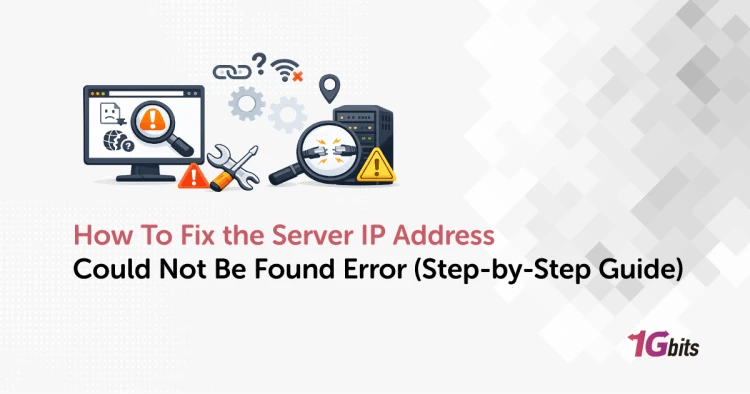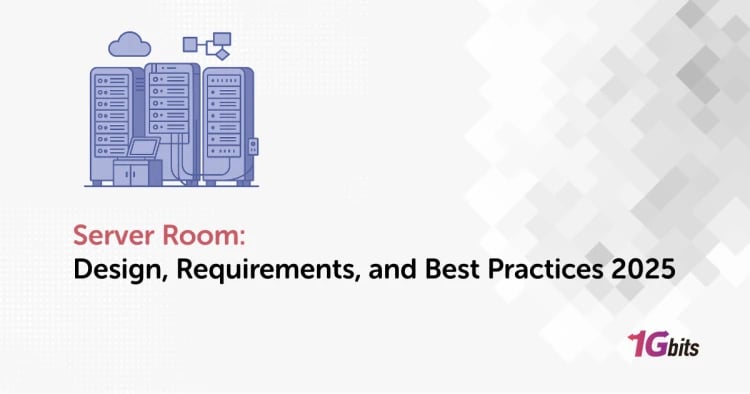Choosing the right hosting solution is crucial for your website’s performance, security, and scalability. Many businesses and individuals find themselves debating between **VPS vs dedicated server hosting**. Both options provide powerful hosting environments, but they cater to different needs. This guide will explore the key differences between VPS and dedicated server hosting, compare their performance, cost, and ideal use cases, and help you determine which solution is the best fit for your website or application.
If you're considering a cost-effective solution, exploring options for a cheap VPS might be a great starting point before committing to a dedicated server.
☁️ Understanding VPS Hosting
A **Virtual Private Server (VPS)** is a hosting solution where a physical server is divided into multiple virtual environments using virtualization technology. Each VPS operates independently with its own dedicated resources, including CPU, RAM, and storage, making it more powerful and secure than shared hosting. Although multiple VPS instances share a single physical server, each user's environment is isolated from others, providing a greater level of privacy and stability.
✅ Advantages of VPS Hosting
VPS hosting offers a balanced approach, providing a blend of affordability, performance, and control. This makes it an ideal stepping stone for websites that have outgrown shared hosting but are not yet ready for a full dedicated server. The key advantages include:
-
Cost-Effective: VPS hosting is significantly cheaper than a dedicated server while still providing better performance than shared hosting.
-
Scalability: You can easily upgrade your resources (CPU, RAM, storage) as your website grows without significant downtime.
-
Better Security: Since each VPS is isolated, your data remains secure even if other VPS users on the same physical server experience issues.
-
Root Access: Unlike shared hosting, VPS gives you administrative access, allowing for full customization of the software environment.
-
Balanced Performance: Compared to a dedicated server, VPS offers a solid balance of power and affordability, making it perfect for moderate-traffic sites.
For a more in-depth look, check out our guide on What Is VPS Hosting.
🖥️ Understanding Dedicated Server Hosting
A **dedicated server** is a physical server entirely reserved for one user or business. This means you get exclusive control over the server’s entire hardware stack, leading to maximum performance, security, and reliability. There are no "neighbors" on a dedicated server, so all resources are available for your use alone, which eliminates performance fluctuations and security risks associated with a multi-tenant environment. If your website or application is mission-critical, or if it requires significant resources, a dedicated server is the gold standard.
🚀 Advantages of Dedicated Server Hosting
Dedicated servers are the most powerful hosting solution available, providing a level of performance and control unmatched by other options. Here are the main advantages:
-
High Performance: With dedicated resources, your server can handle high traffic, large databases, and resource-intensive applications without any degradation.
-
Enhanced Security: Since you are the only user on the server, security risks are significantly reduced, and you can implement your own advanced security measures.
-
Full Customization: You have complete control over both the hardware and software. You can configure the server to match your specific needs, from the operating system to the smallest performance settings.
-
Unmatched Reliability: Dedicated servers provide superior uptime and stability, which is essential for business-critical applications.
If you want to explore the specifics of dedicated hosting, read our guide on What is a Dedicated Server.
⚡ VPS vs Dedicated Server: The Key Differences
Choosing between a **VPS (Virtual Private Server)** and a **dedicated server** depends on your specific needs, budget, and technical requirements. Here is a detailed comparison of the key differences in performance, security, cost, and more.
If you're still unsure which option suits you best, consider testing a VPS with a trial VPS to experience its performance before making a decision. For those looking for a server solution in a specific region, check out our guide on VPS locations to find the best server options near you.
📊 Performance Comparison
Performance is one of the most critical factors when selecting a hosting solution. A **dedicated server** provides the highest level of performance because it offers exclusive access to all hardware resources, including CPU, RAM, and storage. There is no risk of other users consuming resources, ensuring consistent and reliable performance.
On the other hand, VPS hosting operates on a virtualized environment within a physical server, where multiple VPS instances share the same hardware. While it delivers better performance than shared hosting, it does not match the raw power of a dedicated server. For most medium-sized websites, a VPS is more than sufficient, but for mission-critical, high-traffic applications, a dedicated server is the superior choice.
🛡️ Security Comparison
Security is another key distinction. A **dedicated server** ensures maximum security since you are the only user on the machine. This isolation eliminates the risks associated with sharing resources, such as cross-tenant attacks or vulnerabilities from other users impacting your system integrity.
A **VPS** is more secure than shared hosting because it provides an isolated environment, but since multiple VPS instances exist on the same physical hardware, there is still some level of shared risk. To boost security on a dedicated server, you can implement your own firewall and advanced security protocols. If your website handles sensitive data or requires strict compliance, a dedicated server provides the peace of mind you need.
🔧 Customization & Control
When it comes to customization, dedicated servers offer full control over both hardware and software. You can configure the server to meet your exact specifications, install custom operating systems, and fine-tune performance settings for your unique workload. For those who want to choose their server's operating system, our guide on choosing the best OS for dedicated servers offers valuable insights.
A **VPS**, however, has limitations in customization. While you can install and manage applications within the virtual environment, the underlying hardware and some system-level settings are controlled by the hosting provider. This makes VPS a great option for users who need flexibility but do not require complete control over the physical hardware. For those who want to be able to manage their hosting without the stress of an entire physical server, a managed vs unmanaged dedicated server comparison can offer insights into the level of support you can expect.
For those looking to leverage the benefits of a VPS without the upfront costs of owning hardware, opting for a VPS rental service can be a cost-effective and scalable solution.
💰 Cost Comparison
Pricing is one of the biggest differences between VPS and dedicated servers. The costs can vary significantly based on the resources you need.
| Feature | VPS Hosting | Dedicated Server Hosting |
|---|---|---|
| Price Range | $5 to $50 per month | $100 to over $500 per month |
| Ideal For | Startups, small businesses, developers | Enterprises, high-traffic websites, large applications |
| Justification | Access to dedicated virtual resources at a lower cost | Exclusive access to high-performance hardware |
For those on a tight budget who still need dedicated resources, you may also want to explore Cheap Dedicated Servers. Although more expensive than a VPS, these options can offer a more cost-effective entry point into the dedicated hosting world. You can explore Dedicated Server Pricing for a detailed breakdown of costs.
📈 Scalability Comparison
Scalability is another crucial factor. **VPS hosting** is easily scalable. You can increase CPU, RAM, or storage as your website grows without significant downtime or migration efforts. This flexibility makes VPS a great choice for businesses with fluctuating traffic or those expecting rapid growth.
Scaling a **dedicated server** is more complex. It often requires physical hardware upgrades or even migrating to a new server, which can be time-consuming. While a dedicated server is less flexible for rapid scaling, it offers the advantage of starting with a massive amount of resources, ensuring long-term stability and performance. For businesses that are consistently growing and need a flexible hosting solution, a dedicated server can be a great option. For specific regional needs, our Atlanta dedicated servers vs. cloud hosting comparison provides insights into hosting in key markets.
🎮 VPS vs Dedicated Server for Gaming
Gaming servers require high performance, low latency, and stability to provide an optimal experience. In this scenario, dedicated servers are the best choice. They offer powerful CPUs, high-speed SSD storage, and complete control over server settings, which is crucial for handling large player counts and resource-intensive games like Minecraft, Counter-Strike, or ARK: Survival Evolved.
While **VPS hosting** can handle smaller gaming communities or private servers, performance may be inconsistent due to shared physical resources. For serious gaming applications, a dedicated server offers the necessary raw power and consistency. For those who want to run a gaming server, you might also consider a game dedicated server specifically optimized for gaming performance and low latency.
When you're running a business that requires a robust online presence in a specific region, such as Europe, it's beneficial to choose a hosting solution that can provide low-latency and reliable connections for your target audience. You can learn about the key advantages by reading our article on the benefits of hosting in Europe. This can be a game-changer for improving user experience and SEO rankings in that market.
🧩 Shared Hosting vs VPS vs Dedicated Server: A Quick Look
For beginners, understanding the differences between shared hosting, VPS hosting, and dedicated hosting is essential. The following table provides a quick overview:
| Hosting Type | Best For | Key Features |
|---|---|---|
| Shared Hosting | Small websites, personal blogs, low traffic | Cheapest, limited resources, low security |
| VPS Hosting | Growing businesses, moderate traffic, developers | Balance of cost & performance, scalable, root access |
| Dedicated Server | High traffic sites, large enterprises, gaming | Maximum performance, full control, superior security |
For more insights on the benefits of VPS, check out our guide on the Top 10 Benefits of Using VPS for Your Business.
🤔 Should You Choose a VPS or Dedicated Server?
To determine whether you need a VPS or dedicated server, consider the following key questions. These points will help you align your hosting choice with your website’s current needs and future growth plans:
✔️ Choose VPS Hosting If:
-
You are running a growing website with moderate traffic.
-
You need a cost-effective hosting solution with good scalability.
-
You require root access and flexibility but not an entire physical server.
❌ Choose Dedicated Server Hosting If:
-
Your website experiences high traffic and requires powerful, uncompromised resources.
-
You need maximum security and complete customization for your applications.
-
You operate a resource-intensive application such as gaming servers, streaming platforms, or large databases.
🎯 Conclusion: Making the Right Choice for Your Hosting
When comparing **VPS vs dedicated server**, the right choice ultimately depends on your website’s traffic, security needs, and budget. VPS hosting is a great option for medium-scale businesses looking for a balance of cost-effective performance and flexibility. In contrast, dedicated server hosting is the best solution for high-traffic websites and enterprises that need superior power, enhanced security, and full control. By carefully considering your current requirements and future growth, you can select a hosting solution that provides the stability and performance your business needs to succeed online.
People also read:









